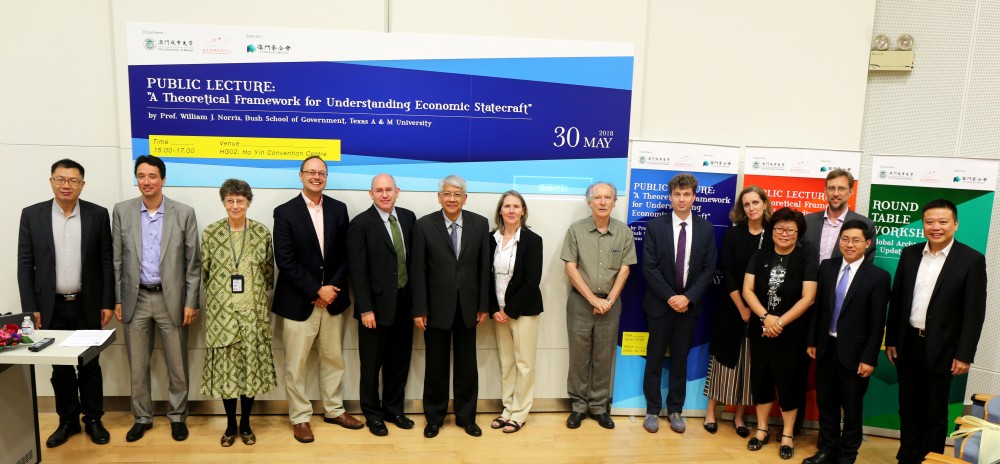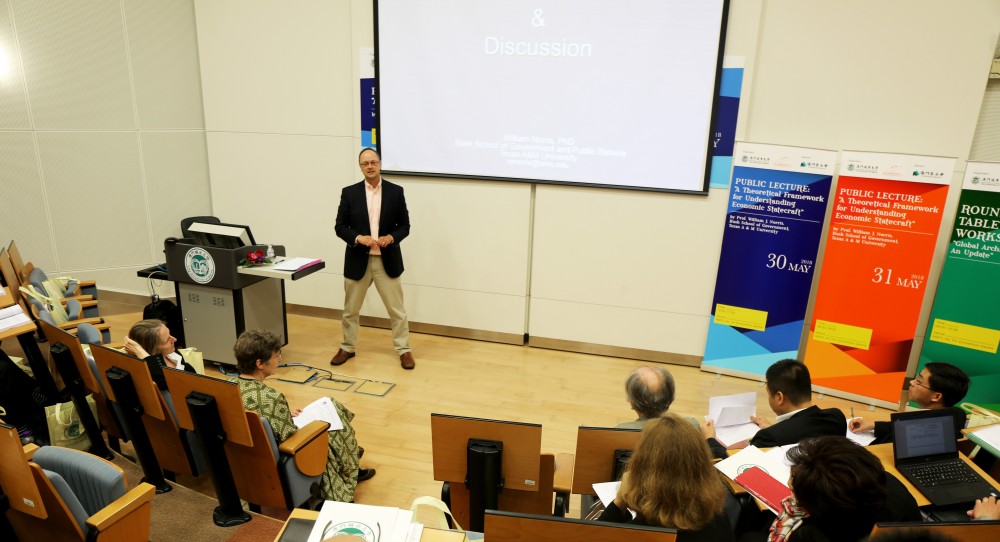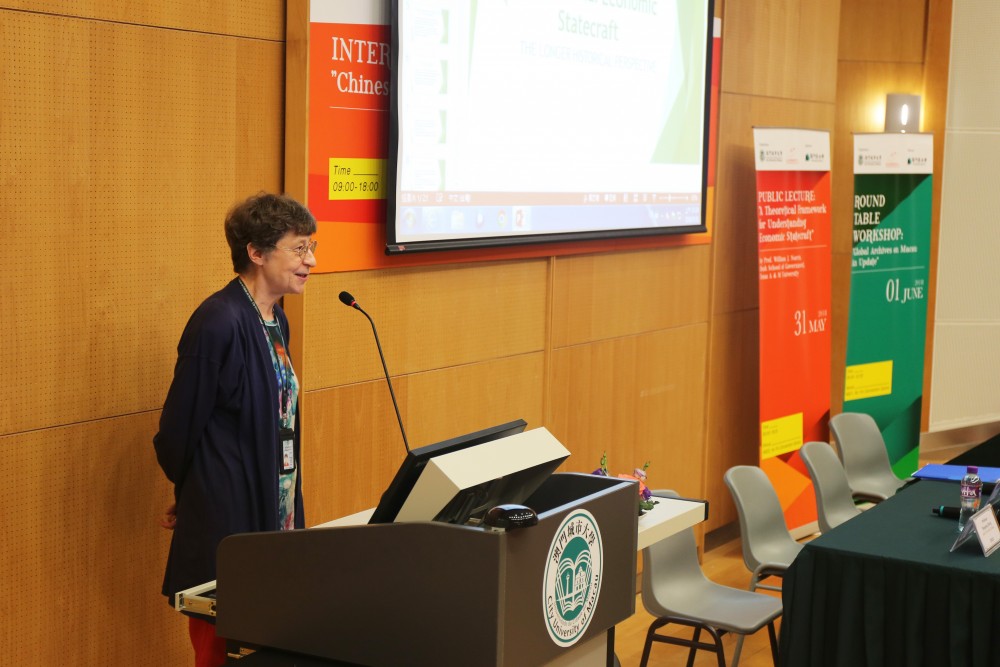On Wednesday, May 30, 2018, Prof. William Norris, professor of Chinese foreign and security policy at the Bush School of Government and Public Service at Texas A&M University, and author of Chinese Economic Statecraft: Commercial Actors, Grand Strategy, and State Control (2016), delivered a public lecture on “A Theoretical Framework for Understanding Economic Statecraft.” This was followed by a commentary by Prof. Margaret Pearson, Dr. Horace E. and Wilma V. Harrison Distinguished Professor and Distinguished Scholar-Teacher in the Department of Government and Politics, University of Maryland, College Park, who has written numerous books and articles on China’s domestic political economy and institutions and Chinese foreign economic policy. This event was attended by Prof. Zhang Shu Guang, Rector of City University of Macau and author of Beijing’s Economic Statecraft During the Cold War, 1949-1991 (2014), who welcomed and introduced Prof. Norris. It was the keynote lecture and opening session of a two-day workshop on Chinese Economic Statecraft Since 1991, intended to mark the beginning of a long-term international group project in this area, sponsored by the Asia-Pacific Business Research Centre of City University of Macau, and funded by the Macau Foundation. It took place in Room HG02, Cultural Centre, Taipa Campus, City University of Macau.
Other speakers and commentators from the next day’s workshop who attended the public lecture by Prof. Norris included Prof. Jean-Marc F. Blanchard, Distinguished Professor of East China Normal University and Executive Director of The Mr. and Mrs. S. H. Wong Center for the Study of Multinational Corporations, United States; Prof. Geoffrey Gunn, Professor Emeritus of the University of Nagasaki and Honorary Professor of the University of Macau; Prof. Margaret Pearson, Dr. Horace E. and Wilma V. Harrison Distinguished Professor and Distinguished Scholar-Teacher in the Department of Government and Politics, University of Maryland, College Park; Prof. Priscilla Roberts, co-director of the Asia-Pacific Business Research Centre of City University of Macau; Prof. Wang Jianwei of the University of Macau; Dr. Jan Knoerich of King’s College, London; Dr. Allison Kai-yin Li Haga of National Taiwan University; Dr. Timothy Summers of Chatham House and the Chinese University of Hong Kong; Dr. Sun Degang of Shanghai International Studies University; and Dr. Nicholas Thomas of City University of Hong Kong.
Vice-Rector Ip Kuai Peng of City University of Macau; Prof. Eva Khong, Executive Associate Dean of the Faculty of Business, City University of Macau; Prof. Chao Peng, Director of the One Belt One Road Research Centre, City University of Macau; and academic staff from the Faculty of Business of the City University of Macau attended this lecture. Other guests included Mr. Alberto Bettencourt, a local businessman with twenty years of experience in Macao; Dr. Staci Ford of the University of Hong Kong; and Mr. Laurens Hemminga, a graduate student from City University of Hong Kong.
Following Prof. Norris’ lecture, which focused on providing a theoretical framework for understanding Chinese Economic Statecraft, the role of both governmental and private institutions, the limitations to Chinese Economic Statecraft, and whether Chinese Economic Statecraft differs from that of other states, Prof. Pearson delivered an insightful commentary, which focused on whether Chinese economic statecraft represents a genuinely coherent approach, or whether it consists of ad hoc responses to particular circumstances. Both Prof. Norris and Prof. Pearson cited Prof. Zhang Shuguang’s seminal work on Chinese Economic Statecraft during the Cold War, which has set the baseline from which future scholars will approach this subject. A number of questions from the audience explored in depth how one should define Chinese economic statecraft, and whether one can or should speak of economic statecraft with Chinese characteristics. The public lecture set the stage for the next day’s more detailed discussions.



